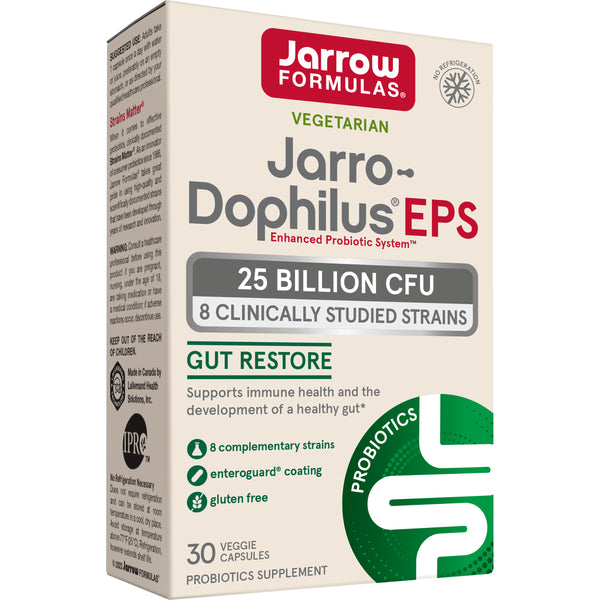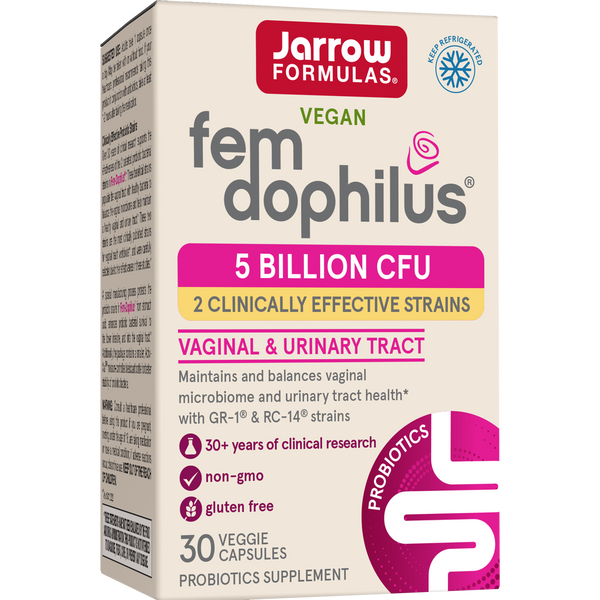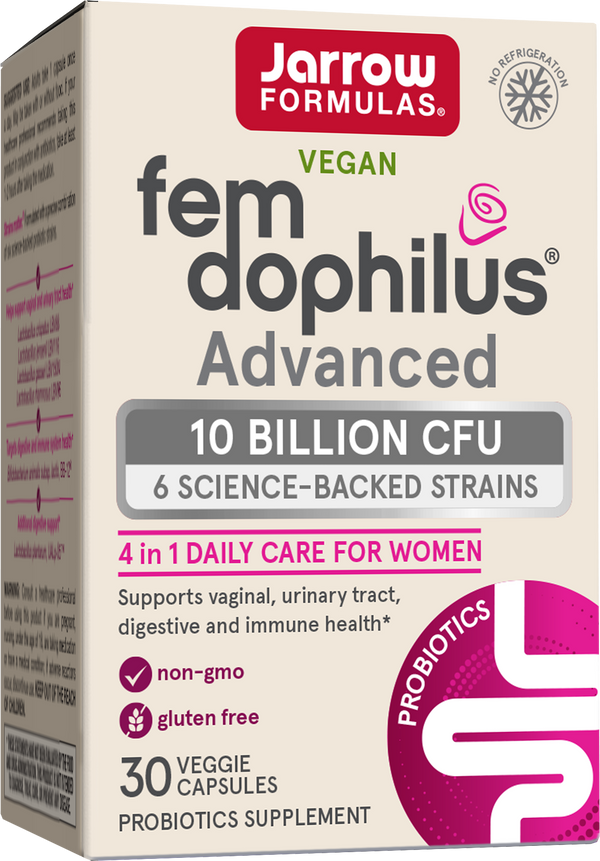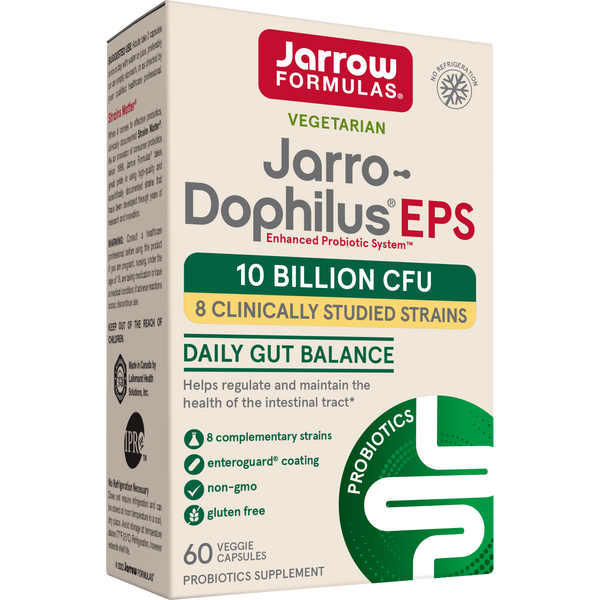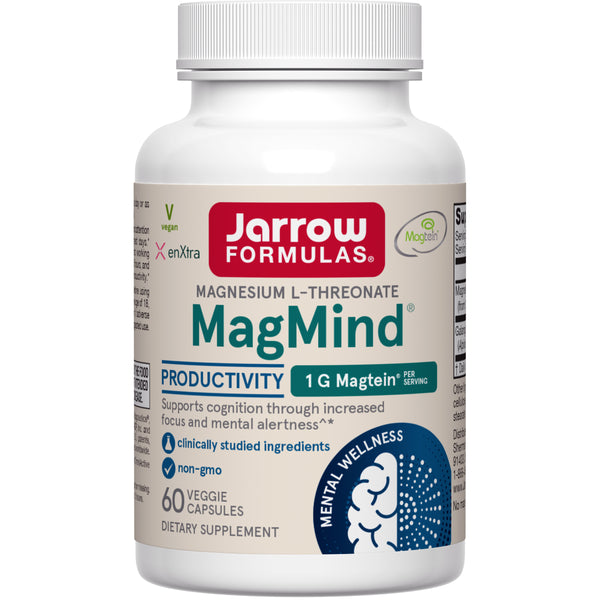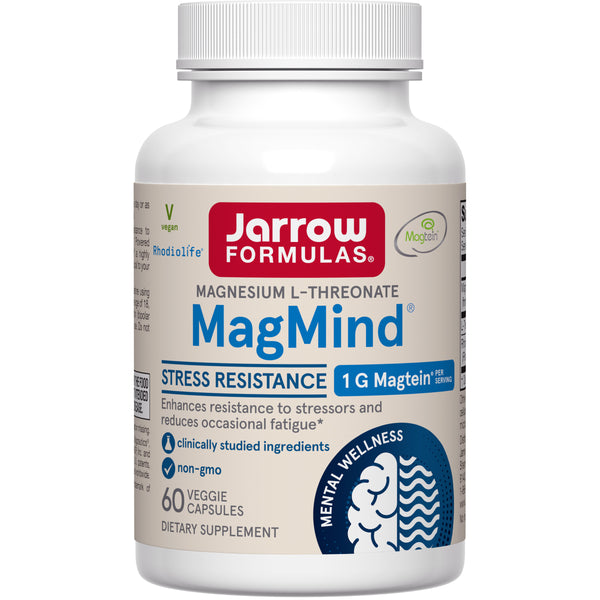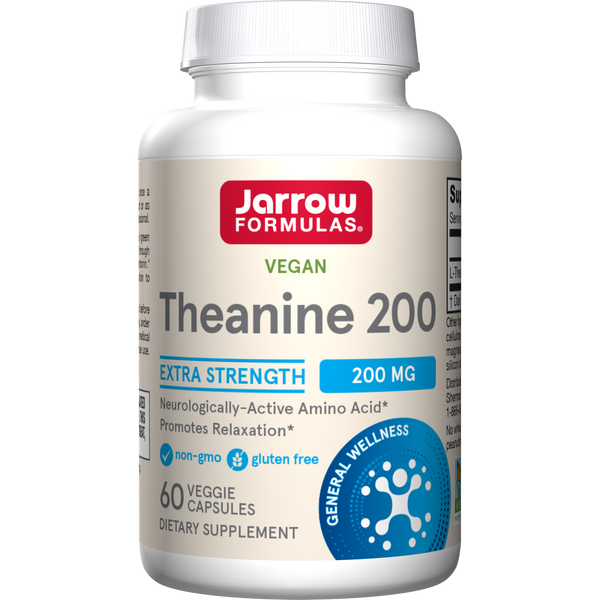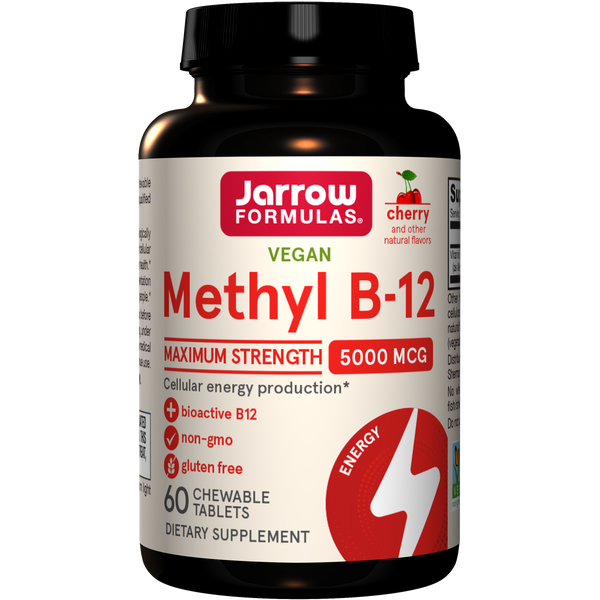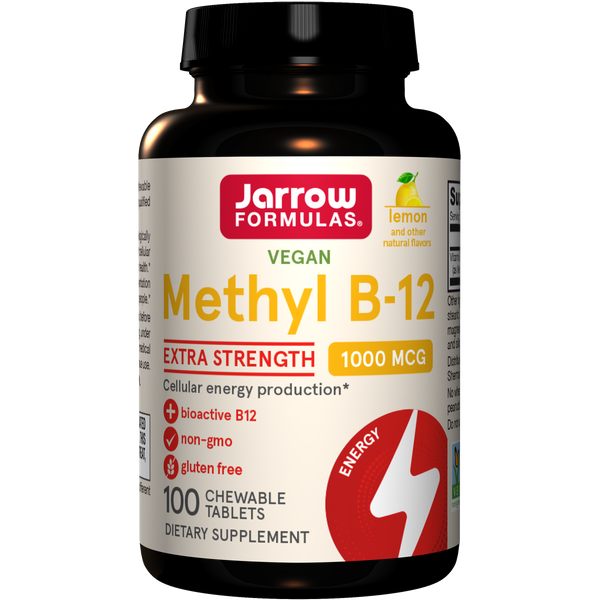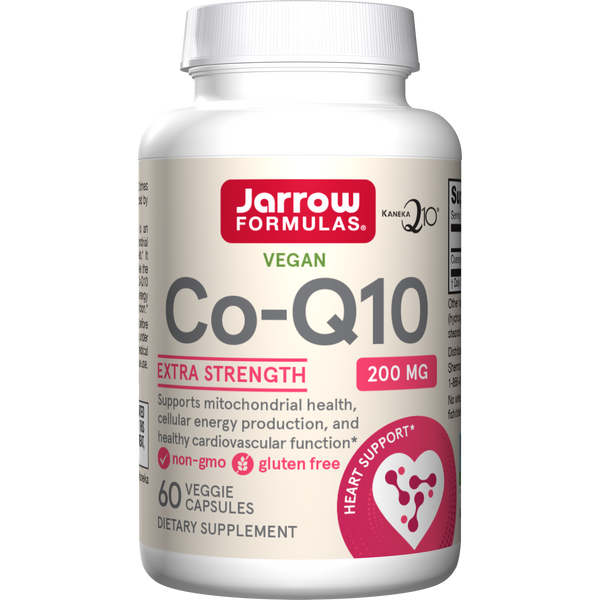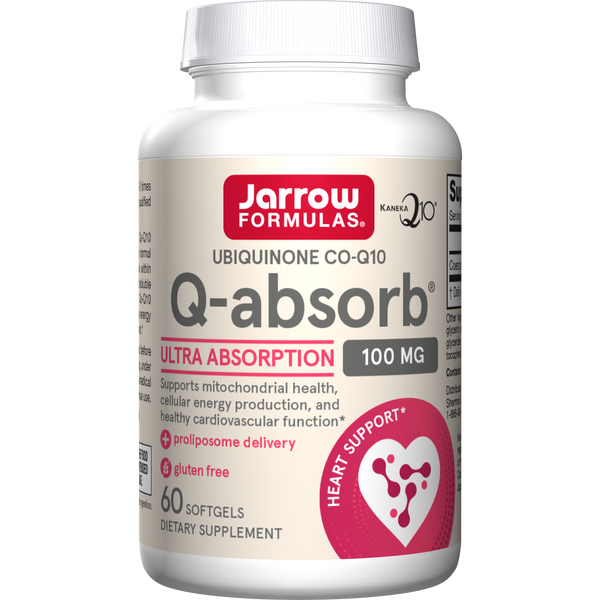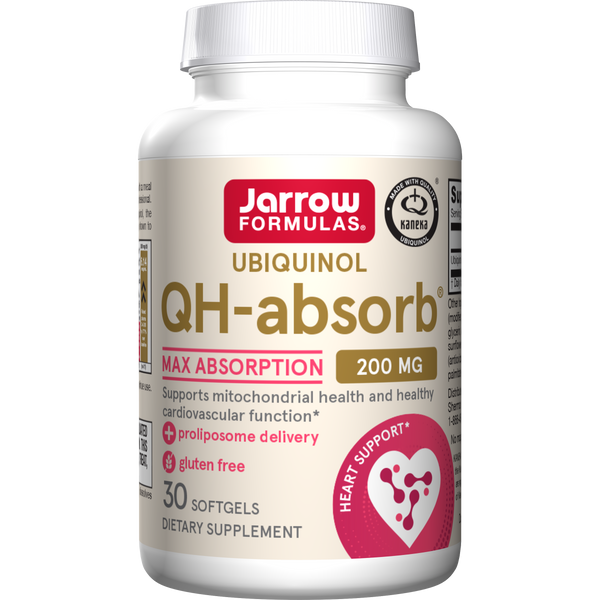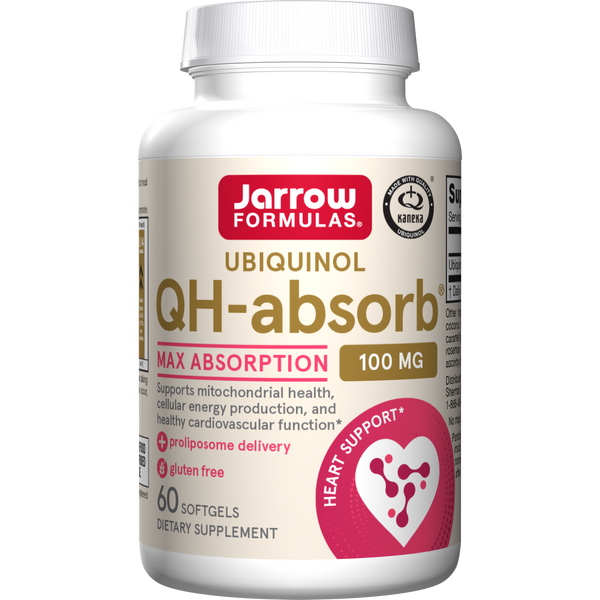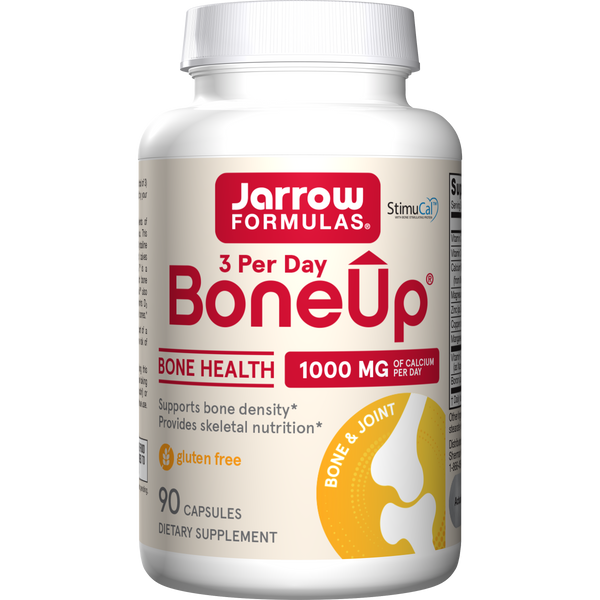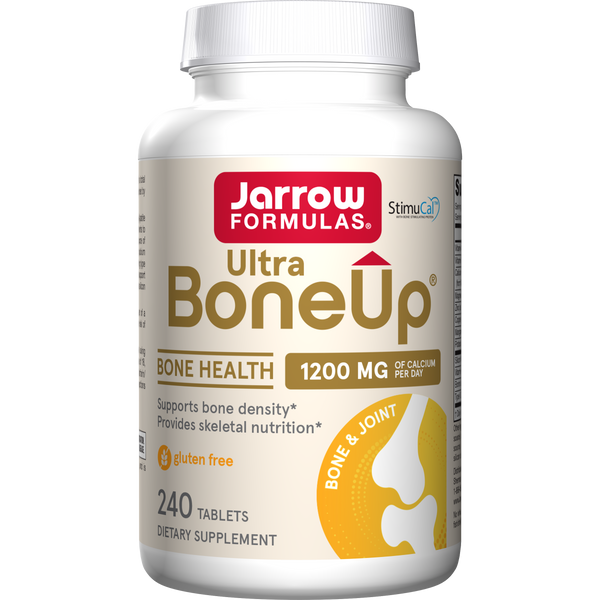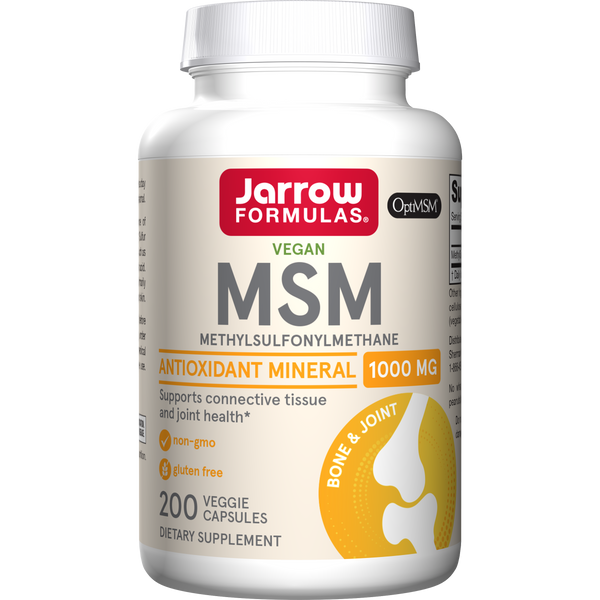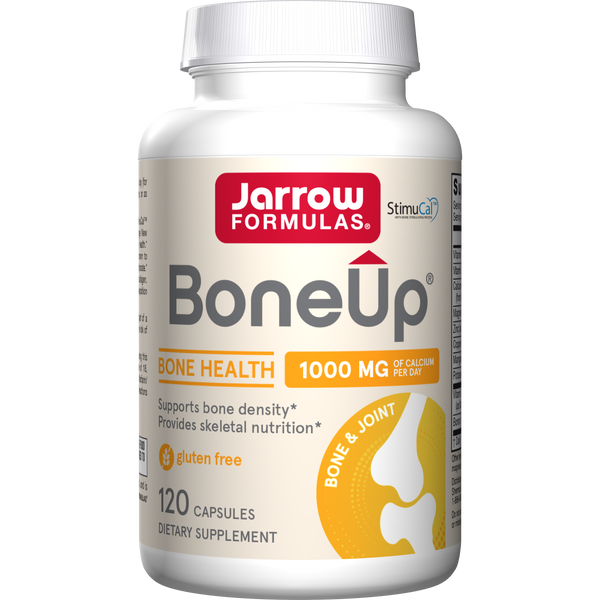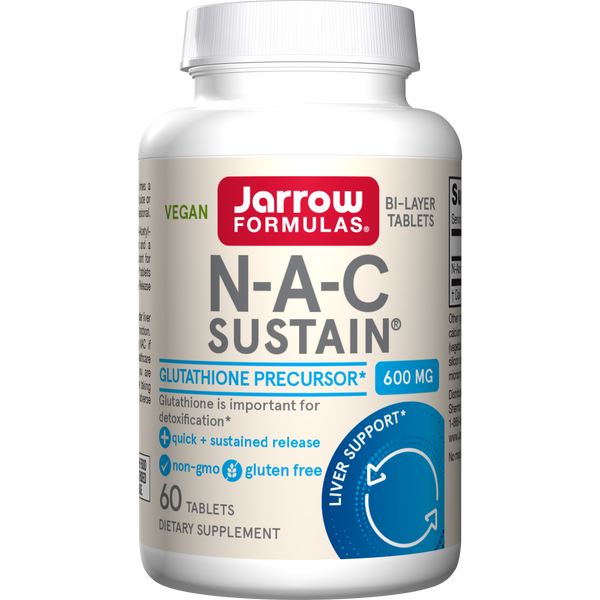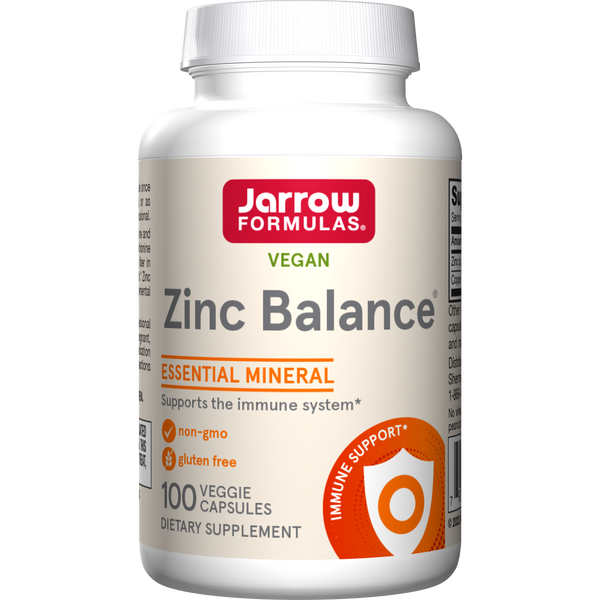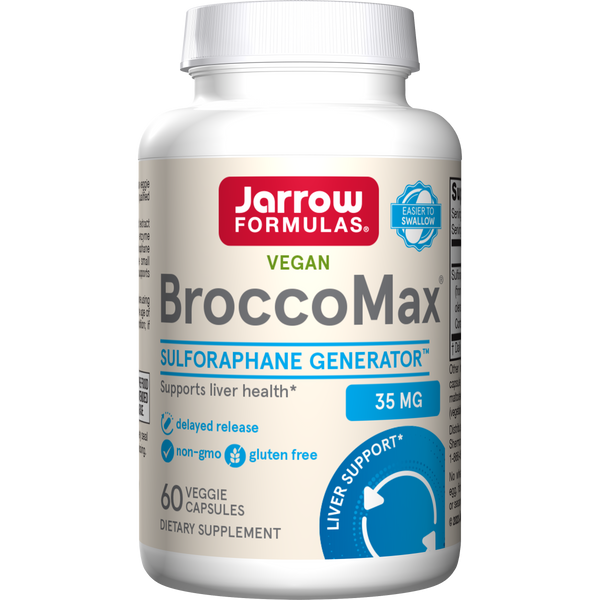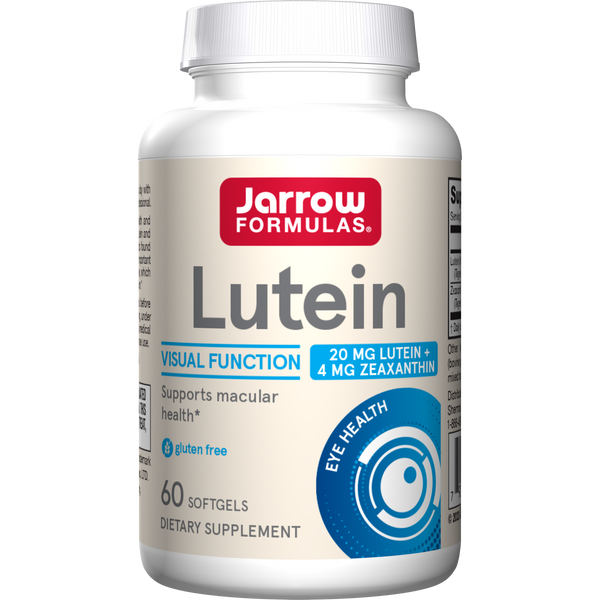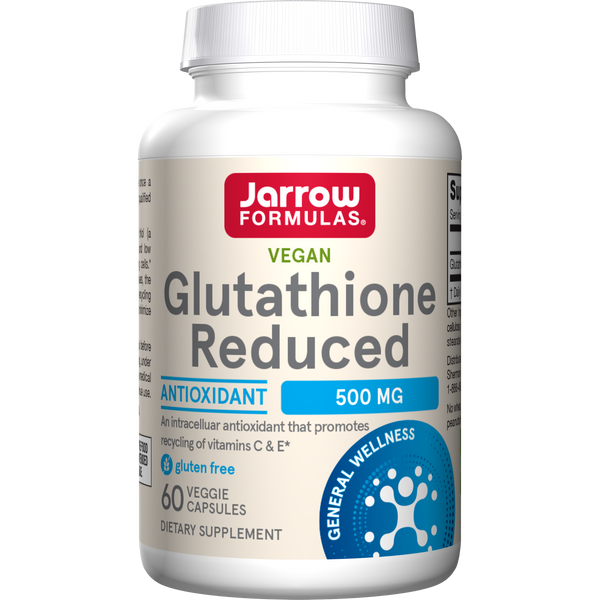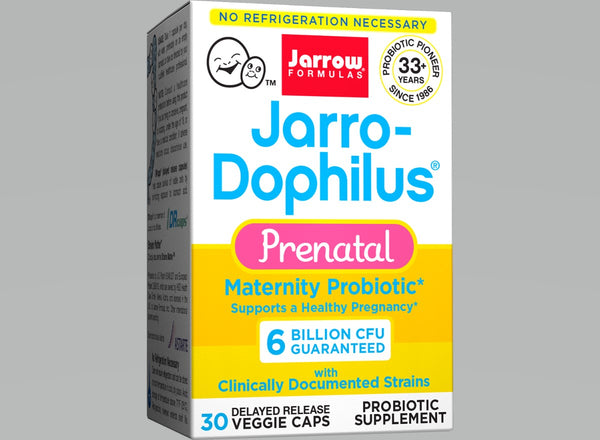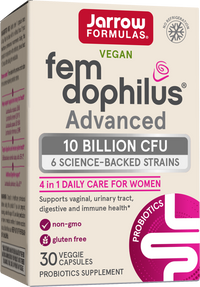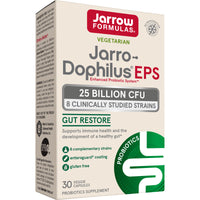Jarro-Dophilus Prenatal Reference Guide
Supports Intestinal and Urogenital Health During Maternity*
Mom’s Microbes: Healthy Pregnancy, Delivery, and Newborn Colonization
Pregnancy is characterized by many immune, hormone and metabolic changes that are required for healthy fetal development and childbirth. A growing body of research suggests that the bacteria residing in the maternal gut and reproductive tract play an important role in supporting a healthy pregnancy and infant development and health.* Furthermore, the process of giving birth plays a role in the microbial colonization of the newborn’s gut.* The mother is the main source of bacteria for newborn colonization of the intestinal tract. Current studies suggest that beneficial bacteria such as lactobacilli and lacticaseibacillus and bifidobacteria may be transferred from the mother’s vagina and gut as well as during breastfeeding.* Thus, beneficial infant colonization depends in part on maternal environmental exposures and diet during pregnancy and lactation. Colonization of the infant’s gut occurs during a critical period of development with important short- and long-term health implications.
Lactic Acid Bacteria and Vaginal Microbial Ecosystem Balance
Lactic acid producing bacteria predominance is considered the hallmark of a healthy vaginal microbiota.* Lactic acid promotes acidification of the vaginal canal (lowering the pH) which reduces growth of undesirable microbes and supports levels of beneficial bacteria for a balanced vaginal microbial ecosystem with limited diversity.* Loss of vaginal lactic acid bacteria, reduces vaginal acidity, and vaginal dysbiosis can result from exposure to various common factors (e.g., sexual activity, stress, vaginal hygiene practices, antibiotics).*
Primary initial colonization of the newborn occurs at birth upon exposure to maternal vaginal, fecal, and skin microbes. Thus there is a difference between babies born vaginally vs. C-section. Initial infant gut colonization by lactic acid producing bacteria and other facultative anaerobic bacteria are thought to produce an anaerobic (low oxygen) gut environment in the first few days of life to support the growth of strict anaerobic bacteria, namely bifidobacteria, that typically dominate the gut microbiota of healthy infants.
Vaginal Microbial Superstars: The Astarte Probiotic Vaginal Strains
The four clinically tested, lactic acid producing Astarte probiotic strains: Lactobacillus crispatus LbV 88, Lactobacillus jensenii LbV 116, Lactobacillus gasseri LbV 150N, and Lacticaseibacillus rhamnosus LbV 96, were isolated from healthy pregnant women and represent the most prevalent and dominant species found in the healthy vaginal microbiota.* These unique strains were selected among many candidate strains, for probiotic attributes to support women’s reproductive and urinary tract health and are well suited for survival during gut transit.* Multiple clinical studies have shown that oral supplementation with these strains helps restore and maintain a healthy vaginal flora and proper acidity to support vaginal microbial ecosystem balance.*
Infant Microbiota Development / Bifidobacterium longum subsp. Infantis M-63
Bifidobacteria typically predominate within the gut microbiota of healthy infants but recent evidence has revealed a general decline in bifidobacteria abundance and specifically the loss of the key infant colonizer, Bifidobacterium longum subspecies infantis (B. infantis), suggesting modern negative impacts to their natural evolutionary enrichment of the infant gut.
B. infantis is unique as the only bacterium able to comprehensively use all non-digestible complex sugars in human milk, human milk oligosaccharides (HMOs), to limit growth of other bacteria and exploit the full benefits ofbreast milk.* A bifidobacteria-predominant infant gut microbiota dominated by B. infantis has been associated with improved growth, gut maturation (barrier function), and immune function.* Absence of B. infantis within the infant gut coincides with reduced levels of bifidobacteria and increased levels of undesirable bacteria.*
B. infantis M-63 is a clinically documented probiotic strain isolated from a healthy infant and shown to efficiently colonize the infant gut to support the establishment of a bifidobacteria-predominant gut microbiota.* Jarro-Dophilus® Prenatal provides select vaginal and gut probiotics to synergistically support healthy microbial communities to promote a healthy pregnancy and newborn colonization in support of infant health, development, and protection.*
Mom’s Microbes: Healthy Pregnancy, Delivery, and Newborn Colonization
Pregnancy is characterized by many immune, hormone and metabolic changes that are required for healthy fetal development and childbirth. A growing body of research suggests that the bacteria residing in the maternal gut and reproductive tract play an important role in supporting a healthy pregnancy and infant development and health.* Furthermore, the process of giving birth plays a role in the microbial colonization of the newborn’s gut.* The mother is the main source of bacteria for newborn colonization of the intestinal tract. Current studies suggest that beneficial bacteria such as lactobacilli and lacticaseibacillus and bifidobacteria may be transferred from the mother’s vagina and gut as well as during breastfeeding.* Thus, beneficial infant colonization depends in part on maternal environmental exposures and diet during pregnancy and lactation. Colonization of the infant’s gut occurs during a critical period of development with important short- and long-term health implications.
Lactic Acid Bacteria and Vaginal Microbial Ecosystem Balance
Lactic acid producing bacteria predominance is considered the hallmark of a healthy vaginal microbiota.* Lactic acid promotes acidification of the vaginal canal (lowering the pH) which reduces growth of undesirable microbes and supports levels of beneficial bacteria for a balanced vaginal microbial ecosystem with limited diversity.* Loss of vaginal lactic acid bacteria, reduces vaginal acidity, and vaginal dysbiosis can result from exposure to various common factors (e.g., sexual activity, stress, vaginal hygiene practices, antibiotics).*
Primary initial colonization of the newborn occurs at birth upon exposure to maternal vaginal, fecal, and skin microbes. Thus there is a difference between babies born vaginally vs. C-section. Initial infant gut colonization by lactic acid producing bacteria and other facultative anaerobic bacteria are thought to produce an anaerobic (low oxygen) gut environment in the first few days of life to support the growth of strict anaerobic bacteria, namely bifidobacteria, that typically dominate the gut microbiota of healthy infants.
Vaginal Microbial Superstars: The Astarte Probiotic Vaginal Strains
The four clinically tested, lactic acid producing Astarte probiotic strains: Lactobacillus crispatus LbV 88, Lactobacillus jensenii LbV 116, Lactobacillus gasseri LbV 150N, and Lacticaseibacillus rhamnosus LbV 96, were isolated from healthy pregnant women and represent the most prevalent and dominant species found in the healthy vaginal microbiota.* These unique strains were selected among many candidate strains, for probiotic attributes to support women’s reproductive and urinary tract health and are well suited for survival during gut transit.* Multiple clinical studies have shown that oral supplementation with these strains helps restore and maintain a healthy vaginal flora and proper acidity to support vaginal microbial ecosystem balance.*
Infant Microbiota Development / Bifidobacterium longum subsp. Infantis M-63
Bifidobacteria typically predominate within the gut microbiota of healthy infants but recent evidence has revealed a general decline in bifidobacteria abundance and specifically the loss of the key infant colonizer, Bifidobacterium longum subspecies infantis (B. infantis), suggesting modern negative impacts to their natural evolutionary enrichment of the infant gut.
B. infantis is unique as the only bacterium able to comprehensively use all non-digestible complex sugars in human milk, human milk oligosaccharides (HMOs), to limit growth of other bacteria and exploit the full benefits ofbreast milk.* A bifidobacteria-predominant infant gut microbiota dominated by B. infantis has been associated with improved growth, gut maturation (barrier function), and immune function.* Absence of B. infantis within the infant gut coincides with reduced levels of bifidobacteria and increased levels of undesirable bacteria.*
B. infantis M-63 is a clinically documented probiotic strain isolated from a healthy infant and shown to efficiently colonize the infant gut to support the establishment of a bifidobacteria-predominant gut microbiota.* Jarro-Dophilus® Prenatal provides select vaginal and gut probiotics to synergistically support healthy microbial communities to promote a healthy pregnancy and newborn colonization in support of infant health, development, and protection.*



